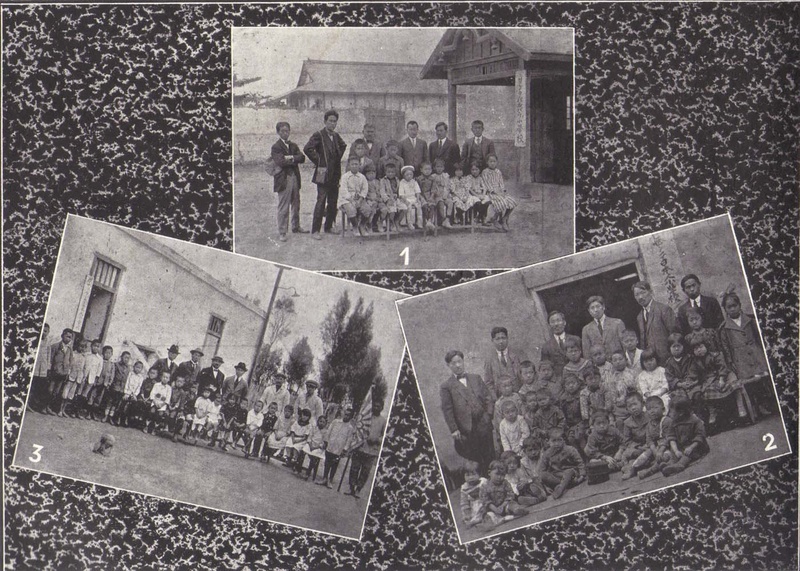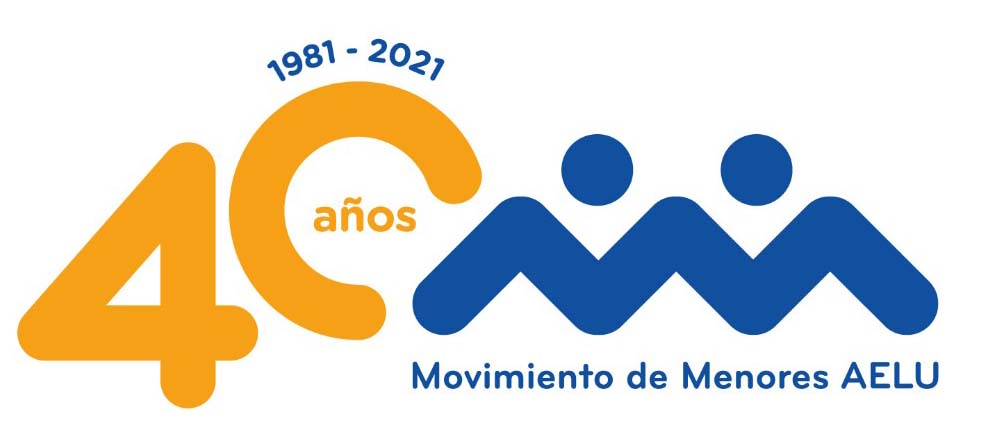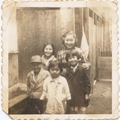They arrived in Peru on the same ship, the SS Hong Kong Maru. Four passengers among a small group of immigrants from Saga-Kiushu Prefecture, who, because their hometowns were close to each other, began a close friendship, one that could even be described as a “close brotherhood.”
For five years they worked together at the Santa Barbara and Casa Blanca de Cañete plantations that belonged to British Sugar, 140 kilometers south of Lima.
Once their work contracts had ended, two of them, who I’ll call Tamotsu san and Tsunesuke san, moved to the city of Pisco, 90 kilometers south of Cañete. Tamotsu san opened a successful restaurant one half block from the city’s central market. For years, the restaurant’s churrasco (grilled skirt steak) was considered the best in Peru’s Sur Chico, or Little South region. A slab of meat that covered two-thirds of the plate, almost two centimeters thick, smooth and juicy; with a bone attached to one side and a light layer of fat on the other, giving the steak a special flavor, masterfully cooked either rare or medium well.
Tsunesuke san opened a tin shop on a street next to the market, a strategic location that guaranteed many customers in an era when enameled items for the kitchen, dining room, and bathroom were common. Made from tin or galvanized, they were easily damaged and often in need of repair.
Kanichi san and Masashi san stayed near Cañete, where they rented small plots of agricultural land in the town of San Luis, close to Santa Barbara plantation. With the money saved from farming the land, along with savings from the years of plantation work, Masashi and his wife also opened a successful restaurant in the town adjacent to the plantation.
Kanichi, on the other hand, bought the land he’d rented and throughout the years expanded his holdings by adding adjoining plots. He also became a leader in the local Japanese community and was deeply involved in its progress.
With the start of the war and Japan’s entry into the conflict, Japanese immigrants suffered serious consequences resulting from the actions of the Peruvian government. This included confiscation of property, deportation, limitations on business activities, and displacement within Peru. Amid these difficulties, the relationship among the four men also suffered. However, because they both lived in Cañete, Kanichi and Masashi were able to maintain a very close friendship.
Soon an unexpected rupture occurred, coinciding with Japan’s increasingly adverse situation in the theater of war. Masashi, who by then had moved to the city of San Vicente, the capital of Cañete province, often made the half-hour long trip with his wife to visit his old friend. Their conversations frequently turned to news of the war and the deteriorating situation in Japan, corroborated by information they received directly from Sato san, a member of the Japanese community in Cañete and owner of an electronics repair workshop. Flouting the ban on listening to short-wave radio, he was able to capture direct transmissions from Radio Tokyo using a short-wave receiver built from old parts, which he could easily disassemble.
Every day around three in the morning he would begin assembling the short-wave radio receiver. Then he would hang a piece of copper wire about 10 meters long from his workshop to the back yard, using it as an antenna. At the end of the news program from Japan, he would take the receiver apart again, hiding the components in different places in the workshop. This was how he avoided detection despite regular police inspections.
As a result, Masashi had a reliable source of information about the situation on various fronts of the war, and as Japan experienced more losses, the conversations with Kanichi became increasingly strained, especially in the last months of 1944.
His friend refused to acknowledge the difficult reality of the situation. His perspective was based on publications received clandestinely from Sao Paulo, Brazil, which stated the opposite of what Masashi was telling him. According to Kanichi, Japan was winning the war and the bad news published in Japan’s newspapers and broadcast on radio programs was simply U.S. propaganda that distorted the truth.
When Masashi brought up Japan’s loss in the Battle of Leyte Gulf, Kanichi spit out the words that caused serious damage to their relationship: “You’re a defeatist and a bad Japanese. We must all be prepared for the insurrection. For a long time, I’ve been asking you to send financial help to our country and to save enough so we can return triumphantly to Japan, but you insist on seeing the negative side.” Finally, hitting the table, he shouted: “You’re not Japanese, you’re a traitor!”
Masashi, holding back the tears in his eyes, left the room without saying a word and gestured to his wife that the visit was over. The idea of being a bad Japanese for accepting defeat was eating him up inside, when he wished so fervently for the possibility of eventual victory.
A couple of months later, near the end of December, Kanichi sent Masashi an invitation to visit him on January 1 to celebrate Oshogatsu. Early in the morning of the first day of 1945, Masashi’s wife reminded him of the invitation, to which he responded, “I’m not going.”
Despite her husband’s refusal, she decided to go with her youngest son as an act of courtesy, to bring good wishes for the new year from one friend to another. Taking her son’s hand, she went to Kanichi’s house in San Luis. Kanichi was offended by Masashi’s refusal to attend the party and when Masahi’s wife greeted him, he responded harshly: “Tell your husband that I still consider him unworthy of calling himself Japanese. He’s a cowardly traitor.”
Masashi’s wife was undaunted and did not get upset. Maintaining her composure, she presented him with the omiage, the gift she had brought. Then, politely bowing her head, she took her young son by the hand, instructed him to say goodbye to the hosts, and left. Kanichi and his wife were taken aback.
Once they reached the street, Masashi’s wife looked her son in the eyes, and said: “Korewa, Shindo Renmei desu” (This is Shindo Renmei*). Thus, on January 1, 1945, this wonderful brotherhood of so many years ended.
*Shindo Reinmei was a group that divided Japanese immigrants in Brazil. They called themselves the “Kachi Gumi” (winners) and insisted that Japan would prevail, while disparaging those who accepted its defeat as “Make Gumi” (losers). They disseminated their ideas through a clandestine publication that contained only news of victories, even after there was no longer any possibility that Japan would win the war. The Kachi Gumi movement spread to Peru, where it attracted an unknown number of sympathizers.
* * * * *
Our Editorial Committee selected this article as one of his favorite Nikkei Generations: Connecting Families & Communities stories in Spanish. Here is their comment.
Comment by Sebastian Kakazu
Through the story of “An Unfortunate Break,” the author Jose Yoshida Sherikawa narrates in a very clear way the issues of a friendship, forged by migration, work, and sacrifice, that unfortunately has come to an end due to having different visions of Japan’s position regarding World War II. This story represents perhaps, many untold stories of unfortunate ruptures generated by the war. If the war hadn’t happened, would those friendships have continued? It is a question to which there is no answer. But I’d like to think that they could have continued. This story invites us to think on how we can lose valuable friendships due to temporary events that are out of our hands. A topic that is very current given the world scenario and that made me wonder if, after so many years, we have really learned something.
© 2021 José Yoshida Sherikawa











